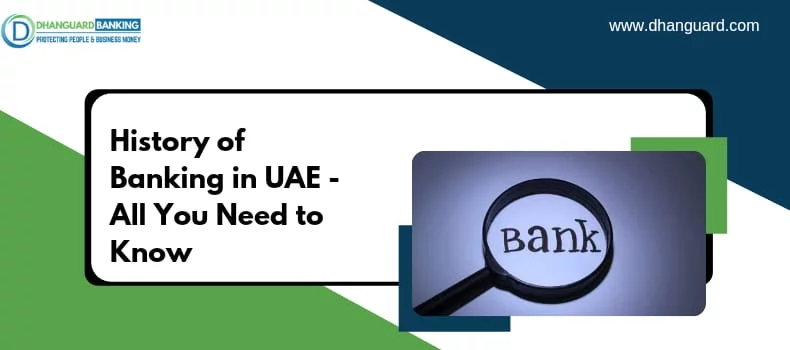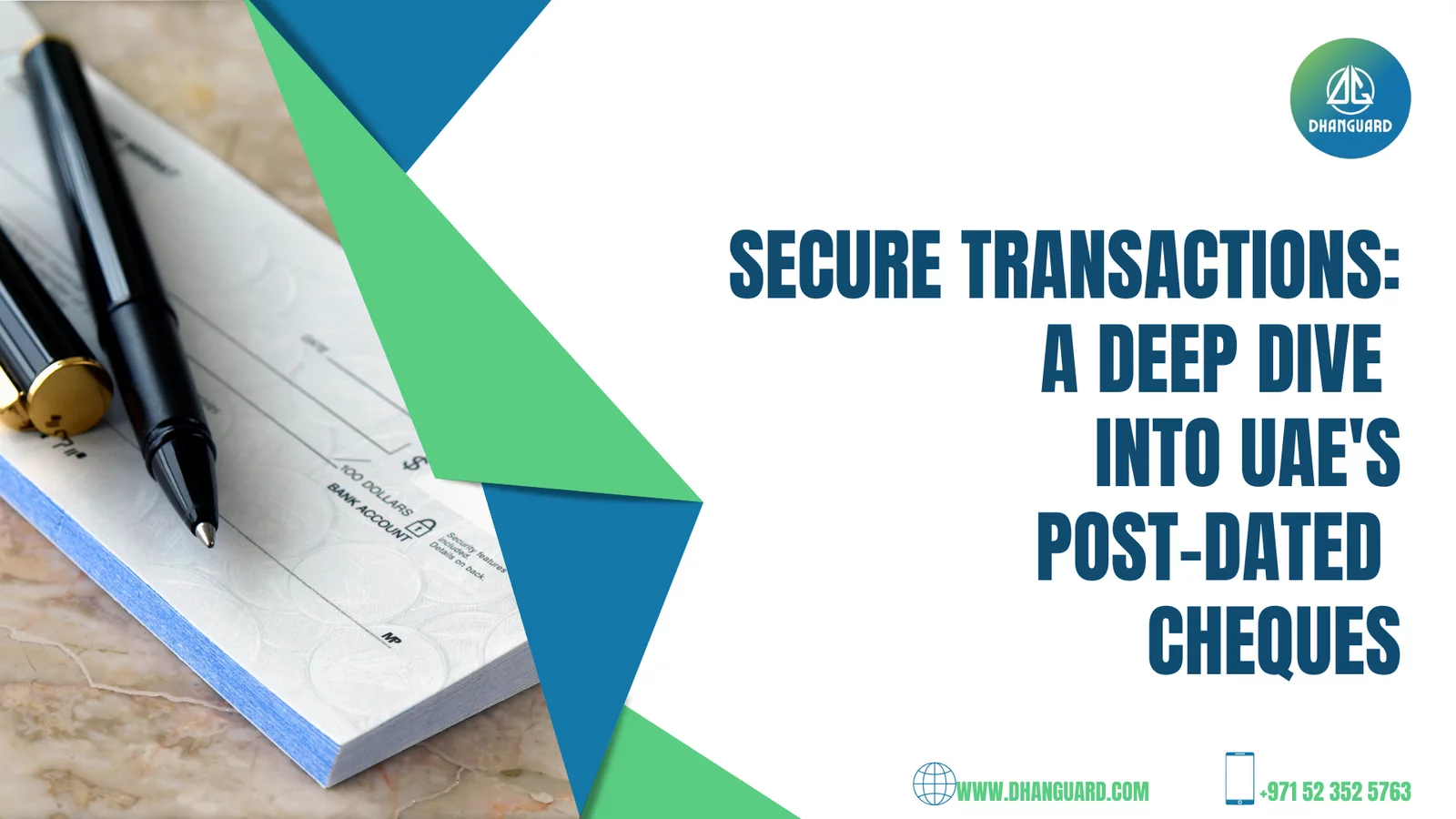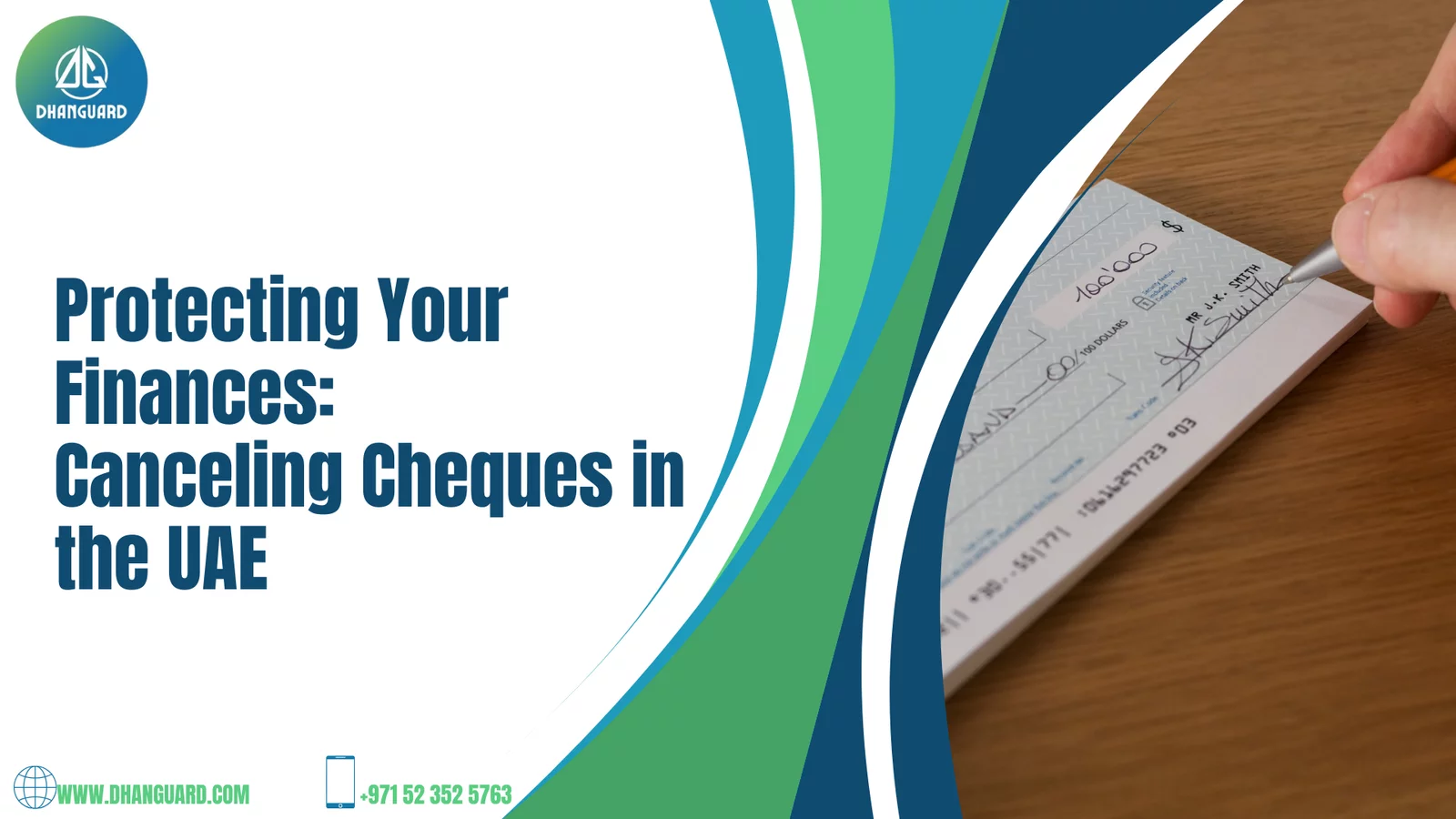If you intend to relocate to the UAE, you will undoubtedly require a bank account to manage your cash. You must select the finest bank account to manage your funds, whether you are looking for work or preparing to start your own business.
Because the UAE has a well-established banking industry, opening a bank account is simple. To make an informed selection, you must first learn everything there is to know about banking in the UAE. Let's start with an overview of the history of UAE bank accounts. We'll also walk you through the greatest banking alternatives available, each with its own set of financial advantages. With this blog, Dhanguard will inform you about the History of Banking in UAE.
Banking History of UAE before the Union
The banking sector in the UAE was already well-established. The Imperial Bank plays a role in the history before the merger. Frank Johnson, a well-known banker, founded Imperial Bank in Dubai in 1946. The bank is currently a subsidiary of HSBC, which has been instrumental in the development of the UAE banking market. HSBC was the first bank in the nation to open ATMs.
Frank Johnson began his banking career in the United Kingdom, according to HSBC archives, and joined the Imperial Bank initiative in 1921. The banker was supposed to build up business for Imperial Bank after finishing two years of training in London.
UAE Banking in Dubai
Dubai was one of the seven sheikhdoms that established the United Arab Emirates in 1971, and it is located on the Trucial Coast. Due to specific occurrences in the 1880s, Frank Johnson became interested in the little Gulf state.
Sheikh Maktoum Bin Hasher Al Maktoum was the ruler in 1894. He saw the ramifications of Lingah's historical transition and determined to build Dubai the most commercially appealing port on the Trucial Coast. By 1901, Dubai had practically replaced Lingah as the main trading hub for most sheikhdoms, and most merchants had begun to migrate to the city.
The Imperial Bank of Dubai opened its doors for the first time on October 14, 1946. Dubai residents were given positions at the bank, reporting to an expatriate boss. In 1949, the Imperial Bank was renamed 'The British Bank of Iran and the Middle East.' The bank was renamed 'The British Bank of the Middle East' in 1952 when it was withdrew from Iran. HSBC bought 'The British Bank of the Middle East' in 1959 and continued to operate under that name until 1999.
Formation of UAE National Banks
The establishment of the UAE's national banks Emirates NBD and First Abu Dhabi Bank were the first two banks to take the UAE's banking sector to new heights.
NBD Emirates
The first UAE national bank, 'The National Bank of Dubai,' was established in 1963. His Highness Sheikh Rashid bin Saeed Al Maktoum founded the bank. The National Bank of Dubai amalgamated with Emirates Bank International on March 6, 2007, to become Emirates NBD. On October 16, 2007, Emirates NBD's shares were listed on the DFM (Dubai Financial Market).
The merger of these two banks proved to be one of the most successful regional consolidations in the history of banking in the UAE, combining the resources of two high-performing banks. Emirates NBD has been providing exceptional banking services with better value across the region since the merger, including Retail, Investment, Islamic, Corporate and Private Banking, Asset Management, Global Markets & Treasury, and more. The company now has 13 locations throughout the world, servicing more than 14 million people.
First Abu Dhabi Bank
The First Abu Dhabi Bank, formerly known as 'The National Bank of Abu Dhabi,' was founded in 1968 by His Highness Sheikh Zayed Bin Sultan Al Nahyan, one of Abu Dhabi's past rulers.
The bank was founded through the merging of the National Bank of Abu Dhabi and First Gulf Bank, two prominent financial institutions. On July 3, 2016, the merger was formally announced, and the deal was authorized on December 7, 2016.First Abu Dhabi Bank is one of the leading financial solution suppliers in the UAE right now.
Origin of Central Bank of UAE
The 'Currency Board' originally established and distributed the UAE national currency, the Dirham, on May 19, 1973, based on Union Law No (2) 1973. The national currency was created to replace the Bahraini Dinar, Qatari Riyal, and Dubai Riyal, which were all in use at the time.
The 'Currency Board' was also replaced by the Central Bank, which is now the Monetary System and Organization of Banking, which keeps currency reserves in gold and numerous currencies in the UAE, according to Law No. 10 of 1980. It is a full-fledged banking institution that oversees and regulates the country's burgeoning financial ecosystem.
Several Types of Banking in UAE
Different types of bank accounts are available in the UAE banking market for various banking reasons.
Let us begin by learning about the many sorts of banking that exist in the country.
Commercial Banking
Commercial banks are financial entities that give loans, receive deposits, and provide basic banking products such as bank accounts, fixed deposits, and other services to both individuals and businesses. Most banks in the UAE are involved in both personal and corporate lending; hence they come under this category.
Banking on a Large Scale
Huge-scale entities, such as government agencies, other banks, large enterprises, other financial institutions, real-estate developers, and others, use these banks for banking services. Working capital finance, mergers and acquisitions, currency conversions, major commercial transactions, and other services are supplied by wholesale banks. In addition to commercial banks, the Central Bank of the UAE lists eleven wholesale banking organizations where you may create a wholesale bank account.
Banking for the General Public
Consumer banking is another term for retail banking. Individual clients can use retail banks in the UAE to get banking goods and services. They urge people to save more money while managing their finances efficiently. Banks allow account users to quickly expand their money by receiving a decent rate of interest. Bank accounts, loans, credit cards, fixed deposits, mortgages, and other financial services are available through retail banks in the UAE.
Banking on Investments
Investment banks mostly assist large corporations and governments in raising funds. These institutions assist in the selling of securities and underwrite new debt for a variety of companies. Reorganizations, broker trades, mergers and acquisitions, and other services are provided to both corporate and private investors. Investment banks in the UAE also assist investors with stock and other debt instrument issuance and placement.
Universal Banking
Under one roof, these banks provide all three major banking services: retail banking, investment banking, and wholesale banking. In other words, universal banks provide both individual and corporate clients with all three types of financial services: retail, investment, and wholesale banking. In the UAE, only big financial institutions are allowed to call themselves universal banks. This sort of banking has muddled the idea of categorizing banks according to their functions.
Conclusion
Now that you understand how the UAE banking system arose and continues to evolve to meet the financial needs of all UAE citizens, you are ready to begin banking in the nation. You can learn more about the features and perks of the best bank accounts in UAE history by visiting our website.
If you have any questions, contact Dhanguard. Our financial professionals will assess your financial requirements and assist you in selecting the most appropriate bank account.
DhanGuard: All-in-One Solution for Business Setup in Dubai, UAE
DhanGuard is your ultimate one-stop solution for all your business needs. Whether you’re planning to set up a new company or expand your existing business in the UAE, we’ve got you covered with our comprehensive range of services. From Business Setup in UAE and Company Formation in Dubai to managing your financial and legal compliance, we provide everything you need under one roof.
Our services include:
- Company Formation in UAE and Dubai
- Opening a Business Bank Account in UAE and Dubai with a 99% success rate
- VAT & Corporate Tax Compliance
- Accounting, Bookkeeping, and Auditing Services
- Trade License Renewal
- Golden Visa Assistance
Let DhanGuard make your journey of Business Setup in Dubai seamless and hassle-free!








